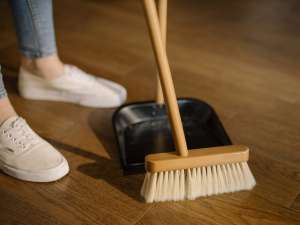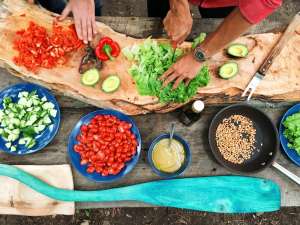They say it takes 10,000 hours to master a skill. This is true for a lot of things. But many things take a lot less time than that. Some of it depends largely on how quickly you pick things up. You could master chess in a lot less time depending on what kind of mind you have. It might take you a lifetime to become moderately competent at other games. One person’s 10,000 hours is another person’s two weeks, and still another person’s lifetime. This general rule is a lot more general and a lot less rule.
That said, there are some things you are going to want to at least try to master. Some life skills are more important than others. No matter what your college roommate tells you, it is not very important for you to learn how to eat 5 gallons of ice cream in 30 minutes. Depending on your major, it might be vitally important for you to master linear equations. One of the challenges all young people face is figuring out what is truly important and what is worth spending time and effort on. Here are three life skills you will be able to more easily master just by first mastering the art of organization:
Study
When you are in school, studying is a full-time job. It seems like it is all you have time to do. And you don’t really have enough time for that. Your workload piles up faster than your dirty laundry. And when you are in college, that is really fast. The key to the masterful study is masterful note-taking. If that happens to be one of your weaknesses, don’t despair. Try the Cornell notes method by using a Cornell notes template.
One of the big differences between a high school class and a college lecture is that the college lecture is extremely information-dense. You have plenty of time to both keep up and goof off in high school. You have no time for goofing off in a college lecture. Further, expect the thing you didn’t write down to be on the exam and count for 30% of your grade. That is just how it seems when you don’t study well. What you might not realize is that taking good notes has less to do with writing fast and more to do with picking your battles. A good notes template will help you be a better note-taker. That is something that will greatly improve everything else you do in life.
Cleaning
Half of the cleaning is organization. The other half is pure grunt work. But that is okay because, with great organization, you have reduced your grunt work by half. That’s pretty good. First, when things stay organized, they tend to also stay cleaner. They don’t end up underneath piles of junk collecting dust. When it is time to clean, the job is made much easier by everything being easy to access and in plain sight. Sometimes, all you need are a few tips for decluttering your home to get you started.
If you master the art of organizing your space, you will also greatly improve your cleaning skills. Cleaning is not just a matter of making things neat and appealing to look at. Cleanliness is a matter of health. It might also be the difference between you winning the heart of that special someone or spending another evening swiping right. They are eventually going to see your place. And they will know whether you actually value cleanliness. Dumping everything in the closet is not going to cut it.
Cooking
You don’t want to spend your life eating food that was removed from a frozen box and heated in a microwave oven. That is no way to live. You will become a much better cook when you take the time to write down important recipes, organize your spices, and keep your kitchen counters clean and ready to go. Often, a meal was ruined because the cook couldn’t find the right tongs when it was time to turn the food. A well-organized cook seldom burns a meal.
There are no life skills that cannot be improved with better organization. That is especially true for study, cleaning, and cooking.













